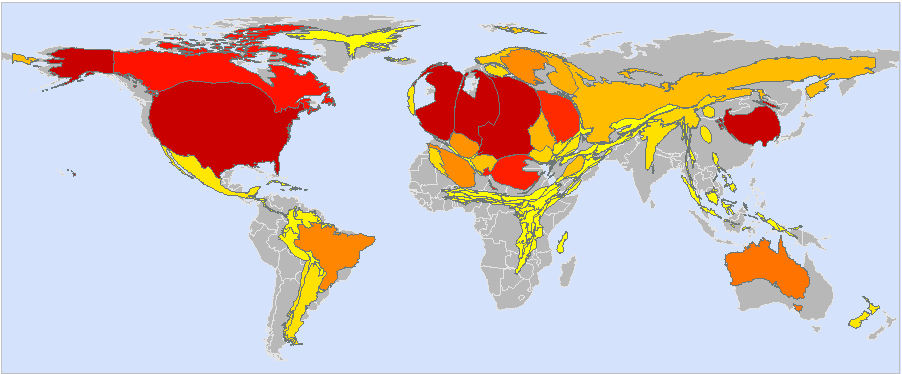Talk: “Special:Contributions/newbies: User study of newly registered user behaviour†by Brianna Laugher. User name : pfctdayelise (pronounced as: “perfect day eliseâ€). Most active on Commons.
Why are we interested in what new users do? New users are really important to community growth. Wikis have to keep growing – they grow or they die.
Interested in the English Wikipedia as it is the trailblazer, and it’s the first point of contact for many people with wikis (so still want a good impression for wikis in general).
Why do new users sign up? Do they think it’s a social site? Do they want to add articles about their employers?
What were other people’s experiences? How did other people interact with you when you first join? When did you first feel that you were part of the wiki community?
The attendees of Wikimania are the success stories.
Did a study of 1 day’s worth of new users. Picked a random day, and just observed all users on EN who registered on that day. What happened to those new users?
Disclaimers:
The day: Feb 1st 2007. 10641 users signed up. This is a fairly typical number.
Showed some of the usernames:
Some were crazy, and you could be sure that they were not coming back.
Not every account represents one person. For example, there were a lot of Stephen Colbert usernames!
Total number of edits that they made:
7000 of the users out of 10000 had zero edits (i.e. 70%). They did nothing with their account.
How many edits until you are part of the community? 50? 100? 1000?
Only 5% of user made more than 10 edits.
Images uploaded by these users:
1329 images uploaded. 40% of these images were deleted.
Some very troubling cases:
Wikipedia = social networking site? To test this looked at talk page. 14% of the sample users had a talk page. Had a look at the edit summaries to the talk pages of these users:
-
14% of the people got a page deletion notice (e.g. you added something not notable).
-
36% got a vandalism warning.
-
19% got an image deletion message.
-
20% got a welcome message.
-
Some people left a talk message to themselves.
Some people seemed to use Wikipedia as a help lifeline. Kind of disturbing messages about people asking for help with bad domestic situations.
Community dynamics:
Discussion of user warnings that we show to people:
“Don’t bite the newbiesâ€. We have template warnings. They are pre-recorded messages. They are officious. It’s not people talking to other people. Templates use the royal “weâ€.
{{uw-test-2}} –> {{uw-test-3}} –> {{uw-test-4}} –> blocking
Not good system for socialisation and introducing people to Wikipedia and what we are about.
Are new users potential Wikipedians, or are they just pests mucking stuff up?
[[Wikipedia: WikiProject user warnings]]. It would be nicer to have [[Wikipedia: WikiProject user socialization]] – instead of scalding people, would be good to socialise them.
What are the goals of Wikipedia?
New users DO muck stuff up. How do we reward good behaviour and encourage people?
There is no page that identities new content adding users (not just spelling or formatting changes), especially by new users, so they can be encouraged and rewarded. Should we add this?
Everyone has something valuable thing to share. The hard thing is find what that is, and get them to share that stuff.
There is a wiki ethos.
“Laugher’s Lawâ€: If you are going to act as is X is not allowed (existing social restriction), you may as well stop letting people do X (introduce a technical restriction).
Recommendations:
-
Change the community attitude.
-
Recognise and reward and promote GOOD behaviour, rather than punishing BAD behaviour.
We treat too much stuff as vandalism. Sometimes people are just confused, or don’t know what to do. Not all people are vandals that we currently call vandalism. E.g. blanking a page can be someone who really knows their stuff (but doesn’t know wikis), and knows that the page as presented is just wrong – so they blank it out.
People being templated to death is due to admins being overloaded. It’s why they were created.
Link to talk’s page.

